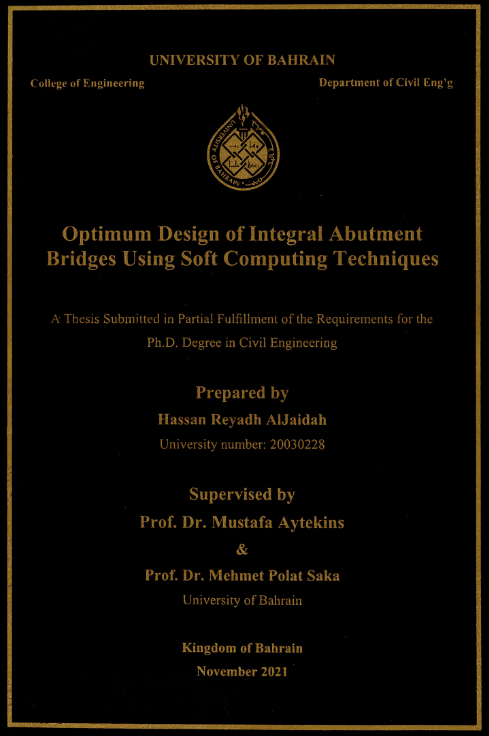Leader-Member Exchange and Organizational Justice in Bahraini Workgroups
وكيل مرتبط
Shammri, Minwir , مشرف الرسالة العلمية
تاريخ النشر
2013
اللغة
English
مدى
[1], 13, 136, [4] pages
مكان المؤسسة
Sakhir, Bahrain
نوع الرسالة الجامعية
Thesis (Master)
الملخص الإنجليزي
Abstract:
Leader-Member Exchange (LMX) and Organizational Justice (OJ) are two organizational
phenomena that have gained much interest over the past decades. LMX refers to the
relationship between a leader and his/her followers while OJ refers to fairness at the
workplace. OJ was subdivided into three dimensions: Distributive, Procedural, and
Interactional Justice. Distributive Justice (DJ) describes the fairness of physical/non physical
rewards distribution, Procedural Justice (PJ) refers to the fairness of procedures
implementation, and Interactional Justice (IJ) to the fairness of interpersonal treatment.
Many researchers proposed that the quality of leaders and subordinates' exchanges are likely
to promote followers' perceptions of fairness and that differentiation in leader-follower
exchanges among subordinates may evoke feelings of unfairness and resentment.
Nevertheless, the arguments on which dimensions of OJ should be related to LMX were not
settled. Furthermore, some researchers suggested that differentiation among employees in the
quality of their exchanges with their leaders was unlikely to affect justice perceptions.
Additionally, it has been noticed that most of the existing LMX and OJ research was focusing
on individuals' perceptions of these phenomena. Only a few studies examined LMX and OJ
as group-level phenomena. At the group-level, OJ was called Organizational Justice Climate
(OJ Climate) and it was subdivided into three climates: DJ Climate, PJ Climate, and IJ
Climate. OJ Climates describe the average of workgroup members' perceptions of OJ with
cach of its subdivisions referring to the corresponding workgroup average perceptions of DJ,
PJ, and IJ. On the other hand, at the group-level, LMX was described using two measures:
LMX Level and LMX Differentiation. LMX Level refers to a workgroup average scores of
LMX while LMX Differentiation describes variance in workgroup scores of LMX.
This research aimed to achieve several objectives. First, the relationships between individuals'
and workgroups' perceptions of LMX and dimensions of OJ were to be investigated. Second,
the relationships between LMX Differentiation and the three OJ Climates were to be
examined. Third, the research was focusing on investigating the impact of workgroup size and
heterogeneity on how differentiation may relate to DJ, PJ, and IJ Climates perceptions.
To achieve the objectives of the study, a survey was developed and used. A purposive non-
probability sampling method was followed to collect data from 173 employees working in
different workgroups belonging to five economic sectors in Bahrain. The individual-level data
on LMX and DJ, PJ, and IJ, which were collected via the survey, were used to examine the
relationship between individuals' perceptions of LMX and dimensions of OJ. Later, the
individual-level data on LMX and OJ dimensions were aggregated to the group-level of
analysis in order to reflect workgroups' perceptions. The aggregated data were used to study
the relationship between workgroups' perceptions of LMX and OJ Climates. Spearman's rank
order correlation was used to verify the relationships between LMX and OJ dimensions at the
individual-level of analysis and between LMX Level, LMX Differentiation, and all OJ
Climates at the group-level of analysis. Furthermore, Partial Spearman's rank order
correlation was used to examine the potential role of workgroup size and heterogeneity on the
relationship between LMX differentiation and all OJ Climates.
Key findings of the research indicated that individuals' and workgroups' perceptions of OJ
were positively related to their perceptions of the level of exchange exerted by a leader toward
his/her subordinates. Furthermore, support for the relationships between LMX Differentiation
and OJ Climates was not verified. Additionally, no impact of workgroup size and diversity on
the relationships between OJ Climates and LMX Differentiation was found. To be more
precise, no significant relations were reported between workgroup size and heterogeneity, OJ
Climates, and LMX Differentiation, except for the association between IJ Climate and
workgroup size.
Based on the research findings, leaders in Bahraini organizations are advised to develop high
quality exchanges with their subordinates in order to increase their subordinates' perceptions
of OJ dimensions which probably lead to organizational prosperity, create a healthy work
environment, enhance task performance, and promote employees' welfare and peace of mind.
Additionally, those leaders should be cautious of the potential negative relation of LMX
Differentiation to their subordinates' OJ perceptions. Although the current study did not
support this claim, care is still warranted.
المجموعة
المعرف
https://digitalrepository.uob.edu.bh/id/65c95598-e1ab-4e7b-b01a-413fda885661
مواد أخرى لنفس الموضوع
